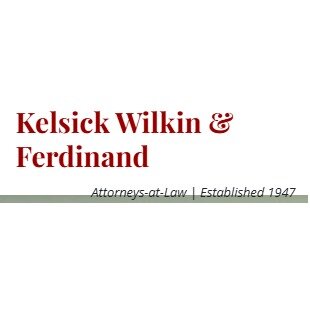Best Banking & Finance Lawyers in St Kitts and Nevis
Share your needs with us, get contacted by law firms.
Free. Takes 2 min.
Or refine your search by selecting a city:
List of the best lawyers in St Kitts and Nevis
About Banking & Finance Law in St Kitts and Nevis
Banking & Finance law in St Kitts and Nevis is a vital component of the country's economic framework. The jurisdiction is renowned for its robust financial services sector, which attracts international banking institutions and businesses. St Kitts and Nevis have developed a dynamic financial system that supports a wide range of financial services, including banking, insurance, investment, and estate planning. The regulatory environment is influenced by both local and international standards, ensuring a high level of compliance and security for financial transactions.
Why You May Need a Lawyer
There are several scenarios in which individuals or businesses may require the services of a lawyer specializing in Banking & Finance in St Kitts and Nevis:
- Setting Up a Bank Account: Assistance with understanding and fulfilling the requirements for opening personal or business accounts.
- Loan Agreements: Guidance through the process of negotiating and drafting loan agreements.
- Investment Transactions: Ensuring compliance with local laws when engaging in investments or seeking financing.
- Regulatory Compliance: Advising financial institutions on maintaining compliance with the Eastern Caribbean Central Bank regulations.
- Dispute Resolution: Representation in disputes related to banking transactions or financial agreements.
Local Laws Overview
The legal landscape in St Kitts and Nevis is guided by a combination of local statutes and regional regulations. Key aspects include:
- The Banking Act: Governs the operations of banking institutions within the jurisdiction.
- Financial Services Regulatory Commission Act: Establishes the body responsible for the oversight and licensing of financial service providers.
- Anti-Money Laundering: Framework designed to prevent financial crimes, including money laundering and fraud.
- Tax Incentives: Specific provisions offering tax benefits to financial institutions to encourage investment.
- Common Reporting Standards (CRS): Compliance obligations stemming from agreements with international bodies for tax information exchange.
Frequently Asked Questions
What is the role of the Eastern Caribbean Central Bank in St Kitts and Nevis?
The Eastern Caribbean Central Bank (ECCB) is responsible for regulating and supervising the financial institutions in St Kitts and Nevis. It aims to maintain the stability of the EC currency and the integrity of the banking system.
How do I open a business bank account in St Kitts and Nevis?
To open a business bank account, you'll need to provide documentation such as a business license, proof of registration, identification, and possibly financial statements. Consulting with a lawyer can help ensure you meet all legal requirements.
What laws protect consumers in banking transactions?
The Consumer Protection Law, along with banking regulations, safeguard consumers’ rights and ensure fair treatment in all banking transactions within St Kitts and Nevis.
Can foreign investors access banking services in St Kitts and Nevis?
Yes, foreign investors are welcomed and can access a variety of banking services in St Kitts and Nevis, subject to fulfilling the necessary legal and regulatory requirements.
Are there legal restrictions on taking funds out of the country?
While there are no significant restrictions, there are anti-money laundering regulations in place that require declarations and documentation for larger transactions.
What should I do if I have a dispute with my bank?
If you encounter a dispute with your bank, it's advisable to seek legal counsel to understand your rights and the possible courses of action. Many issues can be resolved through negotiation or legal proceedings.
How is confidentiality handled in banking transactions?
Confidentiality is a core principle in banking within St Kitts and Nevis, with strict regulations in place to protect client information, except under specific circumstances such as legal investigations.
What kind of investment opportunities are available?
Investment opportunities in St Kitts and Nevis extend across various sectors including real estate, tourism, agriculture, and financial services, supported by favorable regulations and incentives.
Do I need a legal representative to secure a loan?
Although it's not legally required, it is recommended to have legal representation to review loan agreements and ensure that terms are favorable and compliant with local laws.
What are the risks of not complying with banking regulations?
Non-compliance with banking regulations can lead to penalties, legal action, and reputational damage, making it crucial for both individuals and businesses to adhere to regulatory requirements.
Additional Resources
For further assistance, consider these resources:
- Financial Services Regulatory Commission: The main body overseeing financial compliance and licensing.
- Eastern Caribbean Central Bank (ECCB): Provides guidance on monetary policies affecting banking.
- Local Law Firms: Firms specializing in Banking & Finance law can offer expert legal advice.
- Chamber of Commerce: Offers resources and support for businesses in understanding local regulations.
Next Steps
If you need legal assistance regarding Banking & Finance in St Kitts and Nevis, consider the following steps:
- Identify Your Needs: Clearly define the legal assistance you require, whether for personal investments, business matters, or dispute resolution.
- Consult Experts: Reach out to a lawyer or legal firm specializing in Banking & Finance law to get specific guidance tailored to your needs.
- Gather Documentation: Collect all relevant documents to provide your legal advisor with comprehensive information about your situation.
- Engage in Due Diligence: Research and verify legal firms or advisors to ensure you engage credible and qualified professionals.
Lawzana helps you find the best lawyers and law firms in St Kitts and Nevis through a curated and pre-screened list of qualified legal professionals. Our platform offers rankings and detailed profiles of attorneys and law firms, allowing you to compare based on practice areas, including Banking & Finance, experience, and client feedback.
Each profile includes a description of the firm's areas of practice, client reviews, team members and partners, year of establishment, spoken languages, office locations, contact information, social media presence, and any published articles or resources. Most firms on our platform speak English and are experienced in both local and international legal matters.
Get a quote from top-rated law firms in St Kitts and Nevis — quickly, securely, and without unnecessary hassle.
Disclaimer:
The information provided on this page is for general informational purposes only and does not constitute legal advice. While we strive to ensure the accuracy and relevance of the content, legal information may change over time, and interpretations of the law can vary. You should always consult with a qualified legal professional for advice specific to your situation.
We disclaim all liability for actions taken or not taken based on the content of this page. If you believe any information is incorrect or outdated, please contact us, and we will review and update it where appropriate.
Browse banking & finance law firms by service in St Kitts and Nevis
St Kitts and Nevis Attorneys in related practice areas.
Browse banking & finance law firms by city in St Kitts and Nevis
Refine your search by selecting a city.













